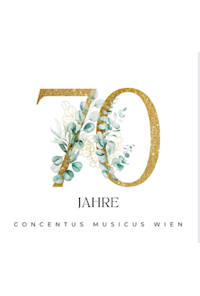Beethoven's only opera belongs to the genre of liberation opera that was current around the time of the French Revolution, which agitated against tyranny and for human freedom in the spirit of the Enlightenment. Despite the topicality of the topic, Beethoven initially failed to win over the Viennese audience for his work, the unconventional music and the inconsistent dramatic style were difficult to access in their novelty.
Fidelio is a hybrid work that begins very concretely with genre scenes in the manner of the Singspiel and ends with an abstract, transfigured ending, almost in a concert.
Don Pizarro, governor of a Spanish state prison, behaves as a feared tyrant. He has had his critic Florestan thrown in prison and plans to secretly eliminate him. Meanwhile, Leonore, Florestan's wife, has disguised herself as a man and is looking for her husband. She was able to follow a lead as far as a certain prison, but she has not yet been able to find out whether the mysterious prisoner hidden there is really Florestan. As "Fidelio" she smuggled into the family of the jailer Rocco. She makes herself indispensable in looking after the prisoners, so that at some point she will also be taken to the stranger. Meanwhile, Rocco hopes that the capable “Fidelio” will soon propose to his daughter Marzelline. Events are accelerated by the arrival of Pizarro: The prisoner should finally die. Leonore wants to save the stranger from the arbitrariness of the tyrant, regardless of whether he is her husband or not. Armed she faces Pizarro. At that moment, the minister Don Fernando, a friend of Florestan's, appears and puts a stop to Pizarro. The separated spouses unite to great jubilation - because the
Prisoner is really Florestan.
Emanuel Schikaneder had long courted Beethoven to write an opera for his Theater an der Wien, which opened in 1801. In 1805 Schikaneder's wish was fulfilled with the world premiere of Fidelio, but
the French occupation of Vienna considerably paralyzed interest in it. The second version of the Liberation Opera was also staged in the Theater an der Wien in 1806, the third in the Kärntnertortheater in 1814.
The discussion of which version should be given preference continues to this day. Nikolaus Harnoncourt has
chosen the last version of Beethoven's drama about freedom, wife love and tyranny for the performance at the Theater an der Wien .



